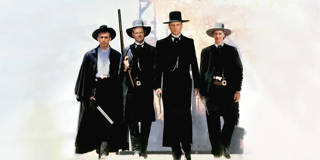With Ukraine depleted and overstretched, and with Russia posing a security threat to the Baltics and Europe more broadly, diplomatic and strategic coordination is more necessary than it has been since the end of the Cold War. Yet political leaders in Europe and the United States look too weak to rise to the occasion.
BERLIN – Democracies tend to struggle with security challenges. That was the context that led W.H. Auden to call the 1930s a “low dishonest decade,” a description that seems to apply to our own.
Now, as then, political posturing is easier than persuasion. Yet persuasion is what one needs to build alliances, galvanize support, and preserve international stability. With Ukraine depleted and overstretched, and with Russia posing a security threat to the Baltics and Europe more broadly, diplomatic and strategic coordination is more necessary than it has been since the end of the Cold War. Yet despite the high stakes, Western leaders look weak and divided. Their 1930s equivalents, French Prime Minister Édouard Daladier and British Prime Minister Neville Chamberlain, appear less pathetic in comparison.
In Germany, Chancellor Olaf Scholz has endured blistering attacks from his own coalition partners over his muddled, incoherent explanation of why he will not furnish Ukraine with Taurus missiles. At the beginning of the war, he memorably spoke of a historical turning point, a Zeitenwende. But he has largely stuck to business as usual. Sometimes, it looks as if the only politician who will defend him is the pro-Russia right-wing leader Alice Weidel.

BERLIN – Democracies tend to struggle with security challenges. That was the context that led W.H. Auden to call the 1930s a “low dishonest decade,” a description that seems to apply to our own.
Now, as then, political posturing is easier than persuasion. Yet persuasion is what one needs to build alliances, galvanize support, and preserve international stability. With Ukraine depleted and overstretched, and with Russia posing a security threat to the Baltics and Europe more broadly, diplomatic and strategic coordination is more necessary than it has been since the end of the Cold War. Yet despite the high stakes, Western leaders look weak and divided. Their 1930s equivalents, French Prime Minister Édouard Daladier and British Prime Minister Neville Chamberlain, appear less pathetic in comparison.
In Germany, Chancellor Olaf Scholz has endured blistering attacks from his own coalition partners over his muddled, incoherent explanation of why he will not furnish Ukraine with Taurus missiles. At the beginning of the war, he memorably spoke of a historical turning point, a Zeitenwende. But he has largely stuck to business as usual. Sometimes, it looks as if the only politician who will defend him is the pro-Russia right-wing leader Alice Weidel.